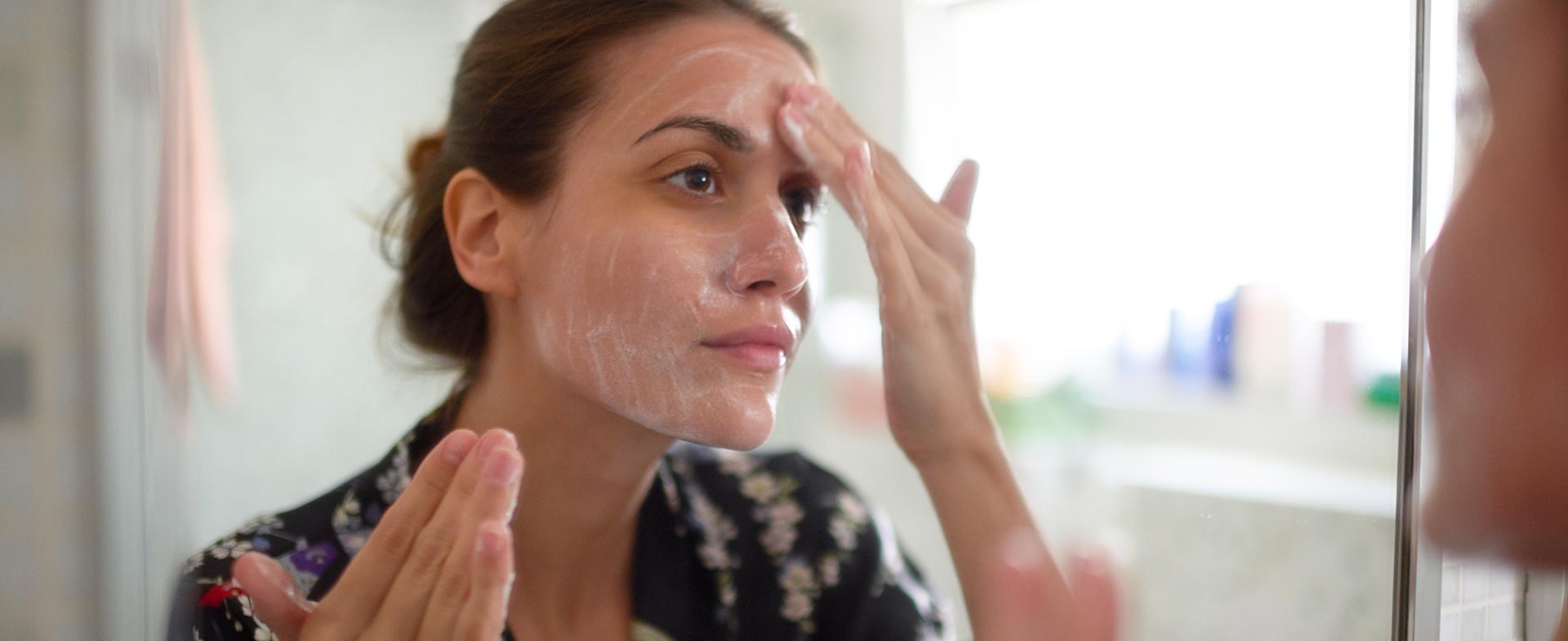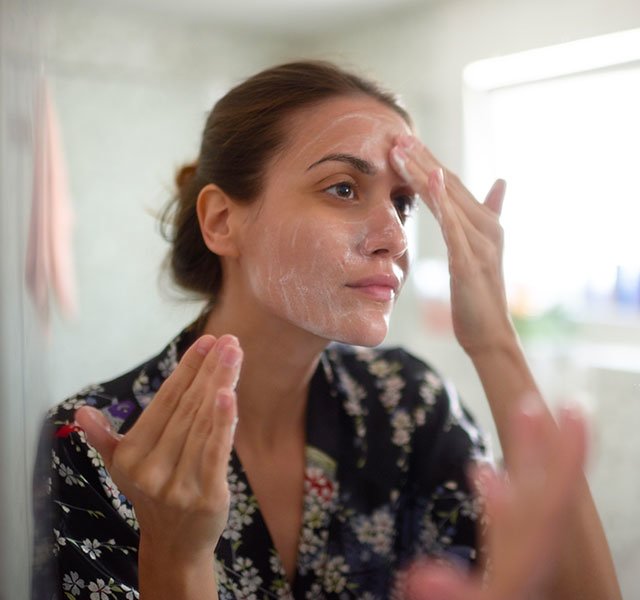If you made it through puberty, you probably thought that was the end of your problems with acne. Sadly, pimples can persist well past your teens and twenties.
"No matter what your age, acne is a product of oil and hormones," says Najat Watch, P.A., a dermatology specialist at Henry Ford Health. "Pimples and even cystic acne erupt from oil-clogged hair follicles, bacteria and inflammation. But treating acne gets more complicated when we're aging."
Acne Explained
Acne is a catchall term to describe pimples, blackheads, whiteheads and even cystic, inflamed bumps. If a pore gets plugged up with dirt, dead skin cells, oil or bacteria, you have the makings of a zit. A key reason pores get clogged: changing hormone levels.
With the hormonal rollercoaster that accompanies their reproductive years and beyond, women tend to experience more adult acne than men. Some women get through the teen years unscathed, and then suddenly, they're developing painful cysts when they're ready to start a family.
"Oral contraceptives are remarkably effective at keeping hormone levels balanced, which means they can also keep acne under control," says Watch. Unfortunately, once women go off the medication, pimples, blackheads and other trouble spots often return with a vengeance.
To make matters more complicated, women entering perimenopause (the years of transition leading up to menopause) may be especially vulnerable to acne. During this phase of life, estrogen levels drop just as male hormones increase, which leads to excess oil in the skin and a greater chance of clogged pores.
Acne Treatment During Mid-Life And Beyond
During your teenage years, you may have been able to use a high-powered blemish buster like benzoyl peroxide multiple times a day without any irritation. Unfortunately, as we age, our skin gets thinner, dryer and more sensitive — and that can pose problems when it comes to treating acne-prone skin.
"The goal is to balance the irritation with soothing, anti-inflammatory agents that nourish aging skin," Watch says.
Fortunately, a good skin care routine for acne-prone skin doesn't have to be complicated. In fact, the same basic rules apply:
- Wash your face twice daily: But steer clear of soap-based cleansers, which can dry out the skin and lead to premature aging. Instead, choose a non-irritating cleanser, such as CeraVe® or Cetaphil®, that will preserve the natural oils in your skin without aggravating acne. And don't overdo it. Washing more than twice a day can strip your skin and cause it to produce more oil to overcompensate.
- Consider hyaluronic acid (HLA): As your skin ages, it has trouble retaining moisture. Fortunately, HLA acts as a great moisturizing agent that also boosts collagen production.
- Try retinols: Over-the-counter and prescription retinol creams encourage skin cells to divide more quickly, which in turn helps heal skin faster. Retinol creams help unclog pores, exfoliate the skin and boost collagen production.
- Use a gentle exfoliant: If you want to exfoliate, keep it to a minimum (no more than three times each week) and choose products that contain ingredients like lactic acid, glycolic acid, or salicylic acid over physical exfoliants like scrubs and brushes. "Exfoliating too often or with products that are too harsh can make acne worse," cautions Watch.
- Get a prescription: Depending on what's causing your acne, over-the-counter topical treatments may not cut it. In that case, visit your dermatologist to discuss your options. Medications that regulate hormone levels, such as oral contraceptives and spironolactone may help quiet breakouts. When that doesn't work, oral isotretinoin (formerly Accutane) can help fight acne.
Being Smart About Acne
If you have a giant zit on your face, it can be tempting to pop it. Don't. Attempting to destroy a pimple with your fingertips, or home remedies found online like lemon or (gasp) dishwashing soap can cause more problems than it solves. "Any kind of manipulation delays healing and can even lead to scarring or a chemical burn," Watch says.
A better approach: Talk to your dermatologist about your options. In addition to the variety of topical and systemic medications available to treat acne, your doctor can customize acne treatments — and reduce the risk of irritation — by using a compounding pharmacy to create a lower-strength option.
If your acne persists for more than a couple of months, and if standard therapies have been ineffective, a full workup may be the next step. Acne can be a sign of another health condition like polycystic ovarian syndrome (PCOS).
"Acne can take a huge emotional and mental toll on patients," Watch says. "But there are plenty of effective treatments available from chemical peels and microneedling to topical medications and antibiotic treatment. We have options — there is hope."
To find a doctor or dermatologist at Henry Ford, visit henryford.com or call 1-800-436-7936.
Najat Watch is a physician assistant and dermatology expert who sees patients at Henry Ford Medical Center - Ford Road in Dearborn.



